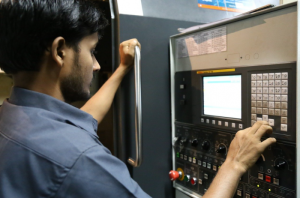Vision
The vision of the department is to become a leader in education, scientific research, and technological development in the field of control and automation, both locally and globally, in a way that supports sustainable development.
Mission
The mission of the department is to prepare technical engineers who possess the necessary skills and expertise rooted in control and automation engineering through technical education and training to meet the demands of the job market.


Objectives
Excellence in Education: Provide high-quality education that equips students with a comprehensive understanding of automation and control technologies.
Industry Relevance: Stay aligned with industry trends and demands to ensure curricula meet the needs of the job market.
Research and Innovation: Promote innovation, critical thinking, and problem-solving skills.
Technical Development: Enhance the technical capabilities of graduates in the field of control and automation engineering.
Job Description
Plan, organize, direct, and monitor all activities related to the maintenance of all control and automation devices and equipment.
Supervise the development of plans and work programs, and distribute them to maintenance technicians for the repair of equipment and devices in specialized workshops.
Supervise the identification of devices and equipment needed by the workplace, in collaboration with different departments, and determine their cost and procurement sources.
Build advanced control devices and digital control systems.
Prepare studies and research to develop the operation of advanced control and automation systems.”